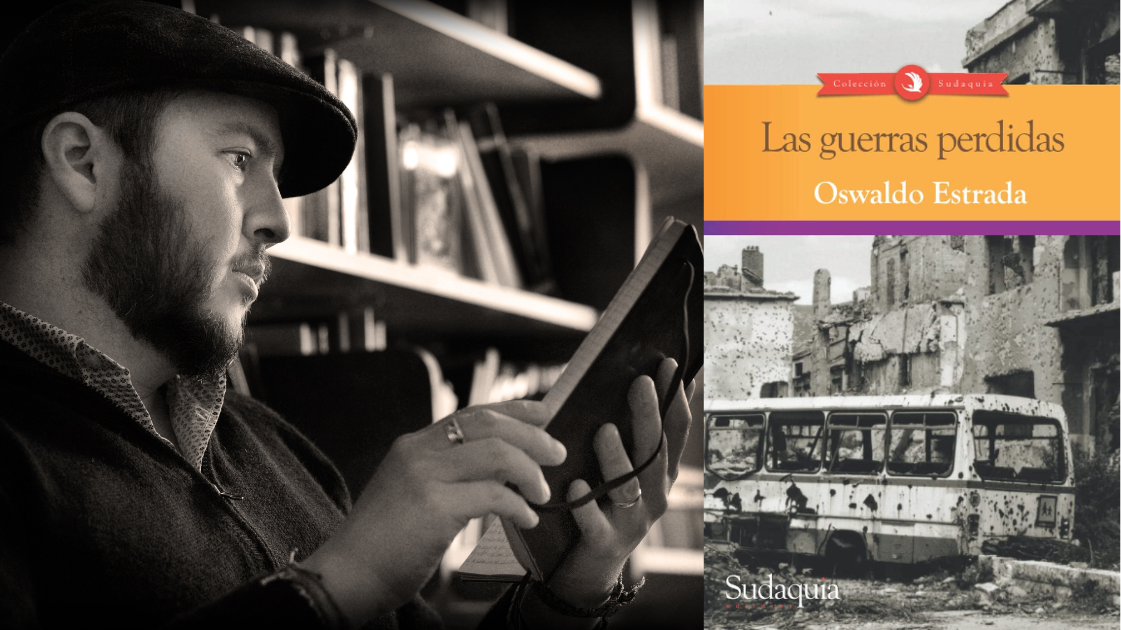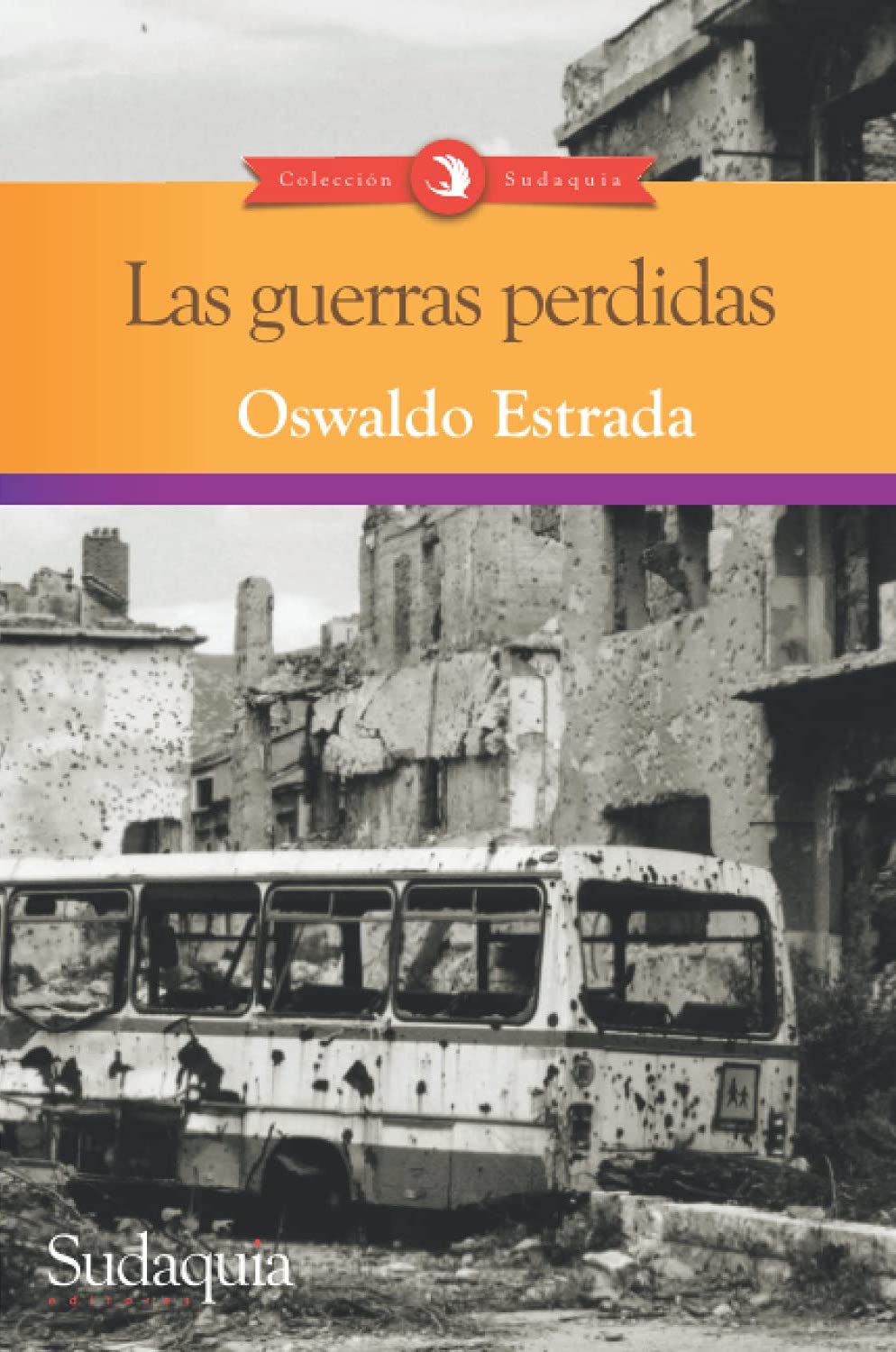Las guerras perdidas
Oswaldo Estrada
|
When you purchase a book through our site, we earn an affiliate commission and so do independent book stores.
|
In Las guerras perdidas the characters always lose and are on the verge of destruction. However, in this hopeless scenario, the plot attempts to redeem them. In that world where nothing matters anymore, everything matters. Oswaldo Estrada approaches them and turns them into heroes of a story where their destiny was decided in advance, and yet, as in the best films, the small details do matter.
This collection of short stories contains touching situations. The universe of Las guerras perdidas is populated by human beings embraced by Estrada. And the stories are told with a well-crafted language that reflects the work of almost ten years that the author has taken to outline these postcards of defeated and yet sublime people. Reading them is a memorable experience. In these stories, as in other books by Estrada (I am thinking, for example, of Las locas ilusiones) there is also a look at reality from the position of someone who is no longer there, an immigrant. To understand the author’s work, it is important to observe those fragments of lives from the perspective of the one who moved, from the one who left, from the one who left a world behind. “You know this dream so well and you still don’t know how to orient yourself when you return to it,” one of the narrators thinks in the first sentence of the book. And it summarizes the tragedy of that immigrant “who did well.” Somehow these stories are the result of involuntary dislocation. The intention seems to be, in some way, to recover them for the present. As if the writer were convinced of a mission: Now that I am where I never wanted to be, I am going to tell you about them because you are what makes me better and I need you so much. And in this effort, Oswaldo Estrada joins a long line of narrators who already tried, before him, the reconstruction of lost worlds. |
That attempt is also a lost war. I think one of the characters, toward the end of the book, sums it up very well with this sentence: “And although you bathe and perfume, you always smell of sadness.” However, that essential scent of the migratory experience is combined in Estrada’s stories with the happiness of that who discovers how to narrate that universe, those dreams, those memories. Isn’t that the tragedy of all those who wake up on the other side but can’t stop looking at those who are still there, in yesterday’s world?
In these short stories, memory and experience are intertwined with that act of reading. Thus, when we read that one of his protagonists: “Was ten years old again and felt a slight caress on his forehead. The smell of sugar stick candy. The corn drink sweetened with cane molasses and the crispy bread fresh from the oven”, Estrada is not only doing what Proust did with his madeleine, but also turning his readers into companions on a journey, inserting them into a literary theme that has been around for a few centuries.
It is difficult to approach nostalgia from nostalgia itself. In one of the stories, the narrator remembers what another character who also emigrated tells him: “That we’ve been here for years, and we’re still homesick.” And perhaps this is what the characters of Las guerras perdidas say to help each other endure the uprooting that tortures them all. Because even if they continue to fight, they know that what is to come, the future they are building, is tied to what they were, to what they left behind.
In these short stories, memory and experience are intertwined with that act of reading. Thus, when we read that one of his protagonists: “Was ten years old again and felt a slight caress on his forehead. The smell of sugar stick candy. The corn drink sweetened with cane molasses and the crispy bread fresh from the oven”, Estrada is not only doing what Proust did with his madeleine, but also turning his readers into companions on a journey, inserting them into a literary theme that has been around for a few centuries.
It is difficult to approach nostalgia from nostalgia itself. In one of the stories, the narrator remembers what another character who also emigrated tells him: “That we’ve been here for years, and we’re still homesick.” And perhaps this is what the characters of Las guerras perdidas say to help each other endure the uprooting that tortures them all. Because even if they continue to fight, they know that what is to come, the future they are building, is tied to what they were, to what they left behind.
Oswaldo Estrada (Santa Ana, California, 1976) has written Luces de emergencia (2019, 2021, International Latino Book Awards), Las locas ilusiones y otros relatos de migración (2020, Premio Feria Internacional del Libro Latino y Latinoamericano en Tufts 2020) and Las guerras perdidas (2021). He has edited Incurables: Relatos de dolencias y males (2020).
Las guerras perdidas (2021) is a publication by Sudaquia.
Las guerras perdidas (2021) is a publication by Sudaquia.
Comment Box is loading comments...
|
|









